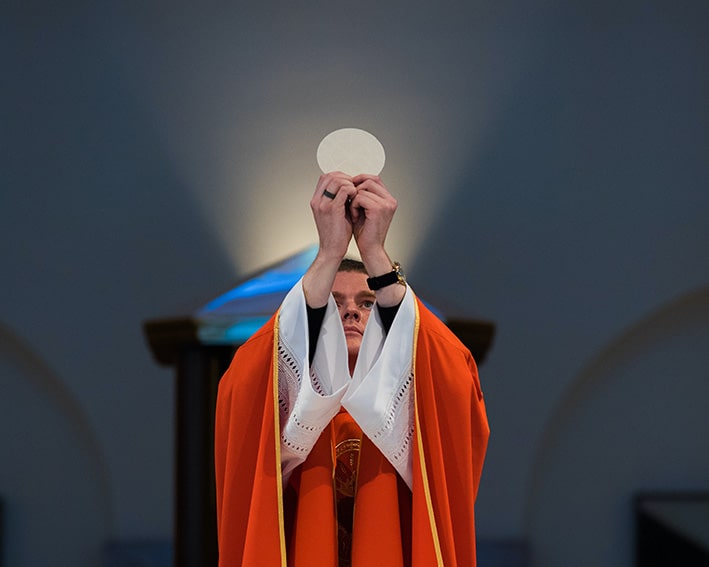
Pope Francis wrote an exhortation on the liturgy, Desidero Desideravi, earlier this year. I’d like to unpack just one element of it – the concept that the liturgy is meant to change us, and not the other way around.
Vatican II understood this. Sacrosanctum Concilium, on the liturgy, was one of the core documents of the Council. It’s powerful stuff.
It says that every liturgical celebration is an action of Christ the priest and of His Body the Church. Nothing else we do in the Church can equal it.
Sadly, many Catholics gave up on preserving and handing on authentic liturgy to the next generation. The result is that in our parishes today, we have liturgical ‘diversity’ that’s creating silos and causing Catholics to be less united and more polarised.
Each of us has worked out which sort of Mass we prefer and have voted with our feet. But in the process, we’ve become what C S Lewis condemned in The Screwtape Letters as ‘tasters of churches’.
We get snippy if a visiting priest does things a bit differently. We grumble when we have a supply priest who ‘doesn’t know how we like Mass said here’.
We have priests who are nervous about saying Mass in a new church because they’re pretty sure they’ll upset someone. One of them told me that the two (fictional) priests he dreads the most are ‘Father Always’ and ‘Father Never’.
This isn’t an argument for making the Mass exactly the same all over the world for everyone. We already have a ‘Mass of the Ages’.
The real ‘Mass of the Ages’ is simply a set of core elements that we’ve been using to celebrate Mass ever since the early Church. You can see it expressed in diverse rites today all over the world.
The Western Church does it one way. The Liturgy of St John Chrysostom does it another way. The Syro-Malabar rite does it a third way. But it’s all the one Mass, drawing on the one sacrifice on Calvary, for all time.
Jesus remained on earth for 40 days after He rose from the dead – a parallel of the 40 days Moses spent on Sinai being taught the Divine liturgy by God Himself (Exodus 35).
I find it hard to believe that Jesus (who is God) didn’t spend at least some time teaching His apostles the core elements of the new liturgy and how it needed to be done.
St Justin and other early Church Fathers told us how Mass was celebrated from the time of the Apostles, and we’re still using those same elements.
But the vehicle in which they’re delivered has changed over time.
That vehicle needs to be able to change. Sacrosanctum Concilium recognised that, but also said this was the job of the Church. It’s not the job of an individual priest, or a scary nun with a diploma, or a liturgy committee.
Liturgy is not about ‘feels’. It’s about a familiar, known, stable form of worship that soaks into your very bones through repetition, and will change you in the process if you’re open to it.
Familiarity doesn’t always have to breed contempt. I was talking to a long-married friend about this.
Living with another person shows up all kinds of quirks that we gradually learn to live with, and then love. In the same way, if you open your heart, the regular repetition and familiarity of the Mass can breed deeper love and greater appreciation of it.
Repetition has had a bad rap because memorisation fell out of fashion in education. It’s now making a comeback because people have realised it’s terrific exercise for your brain.
Repetition and familiarity creates a space for the Holy Spirit to bring you insights into the Mass, the Divine Office, and the Sacraments.
Every now and then, something you’ve been saying without thinking will suddenly take life in your mouth.
This is how the liturgy changes us – if we let it. But it won’t have a chance if we measure our participation in Mass by how good we feel at the end of it.
Sparkly novelties – or even irritating ones – aren’t what Jesus intended for His Church. He gave us Himself in the sacraments, and He is unchanging.
But you won’t grasp that until you let the liturgy soak into your bones and meet Jesus there as His true self – always fresh and new and young.
That’s when you really recognise Him in the breaking of bread.
Related:
Dr Philippa Martyr: Avoiding the gnashing of the dentures
